In Afghanistan, Women Are Winning the Fight Against Virginity Testing
Women in the country have long been subjected to unnecessary and dangerous hymen exams. A new ruling this month brings them one step closer to ridding themselves of the sham procedure for good.
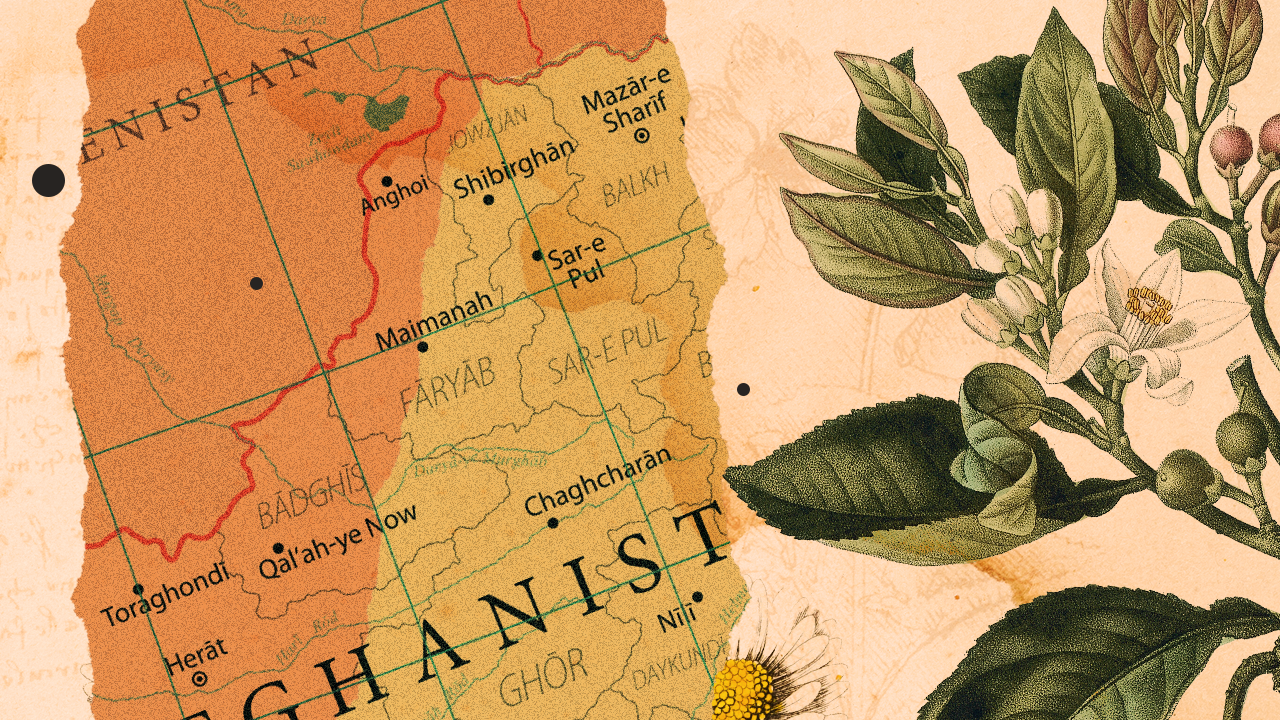

This story was reported with the Fuller Project, a journalism nonprofit reporting on global issues impacting women.
Niloofar wept as the doctor forcibly removed her pants, fearful of what would happen next. Lying defeated on the examination table, bare legs spread and tears streaming into the edges of her headscarf, she regretted ever leaving her home near the northern Afghan city of Mazar-e-Sharif.
“Let me see what you’ve done,” the doctor said angrily before inserting two gloved fingers into Niloofar’s vagina, searching for her hymen.
The hymen, a thin membrane that can be found near the entrance of the vagina, cannot prove or disprove virginity, but the police who hauled Niloofar off to jail last fall didn’t know that. Nor did the judge who ordered Niloofar undergo a so-called virginity test. Or perhaps none of them cared.
Niloofar—who, like many illiterate Afghan women, isn’t sure how old she is but estimates she’s in her early twenties—had made a daring choice. In the late summer of 2017, she chose to run from her life of despair to meet a caring man she’d befriended on Facebook who said he loved her. But instead of finding love with a man her age, she found a 13-year-old boy posing as an older man on social media and his angry father, who pinned her down, tied her hands, and sexually assaulted her. When rumors swirled in the neighborhood about a woman who had run away from home—which is not officially a crime in Afghanistan but is often treated as such —the boy’s father told police that Niloofar had had sex with his son.
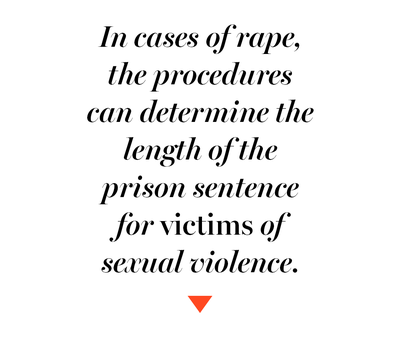
Local police accused Niloofar of zina, or sex outside of marriage, a crime in Afghanistan. Hundreds of Afghan girls and women end up in prison every year, accused of “moral” crimes like zina, or attempted zina. Many of these women have been subjected to forced hymen exams, often at the request of police officers, judges, family members, and potential in-laws. In cases of rape, the procedures can determine the length of the prison sentence for victims of sexual violence. For Niloofar, the court handed down a prison sentence of one year and one month at a cramped women’s prison in Mazar-e-Sharif, a sentence she says would have been shorter if she hadn’t “failed” the virginity test.
The test performed on Niloofar was not a real medical exam. While the state of a girl or woman’s hymen has long been regarded as the ultimate marker of virginity, the science is irrefutable: There is no physical way to test if a person is a virgin. The hymen does not necessarily “break” the first time a woman has sex. In fact, the hymen never breaks; it may only rip or stretch or wear away as a woman ages.
Stay In The Know
Get exclusive access to fashion and beauty trends, hot-off-the-press celebrity news, and more.
Afghan women have seen life-changing advancements since the Taliban fell from power in 2001. But across Afghanistan, where the United States has deployed thousands of troops and spent billions of dollars focused largely on warfighting, as well as legal reform and women’s rights initiatives, women say they still operate as second-class citizens. Afghan women and human-rights advocates have managed to push forward major legal wins, like the 2009 Law on the Elimination of Violence Against Women, which was passed through presidential decree to better protect girls and women against abuse and ensure a legal framework to prosecute offenders. But such laws remain lacking and woefully unenforced. Virginity testing persists, forcing women onto exam tables, their legs spread while physicians probe their genitals.
The unscientific procedure is “sexual torture,” says Mohsena Sadat, a 27-year-old Afghan defense lawyer who represented Niloofar. She is one of several hundred registered female lawyers in Afghanistan. With the help of the legal-aid organization Medica Afghanistan, Sadat defies death threats—from unknown callers and from prosecutors—to represent women who have been subjected to forced hymen exams. Some women, like Niloofar, have ended up in prison following a state-sanctioned test. Others, like 19-year-old Medina, were forced into the exam multiple times by in-laws after failing to bleed enough (or what they considered “normal” for a virgin) on their wedding night.

Bleeding, Medina explains, means women are worthy of “value and respect.” Without it, she has “no value.” Medina attempted suicide by hanging herself. When that failed, she tried rat poison. After three days and three nights in the hospital, Medina pulled through. Now she’s speaking out.
Medina says she doesn’t “believe in men anymore.” She hasn’t gotten formally divorced—a divorce might ruin her reputation further—and for now, she’s living with her uncle; her father kicked her out of the house. “I want to stand on my own two feet,” says Medina, wearing a rainbow headscarf, dabbing her eyes with tissues. She looks around the room, a calm office with robin’s-egg-blue walls, its door shut for privacy. Her lawyer, Nabila, who works with Medica Afghanistan alongside Sadat, smiles silently, urging her to continue. “I want to help other women.”
With the help of Nabila, Medina is back in school, and she plans to study to become a gynecologist. “If any husband brings his wife for a virginity test,” she says, anger piercing through her otherwise quiet demeanor, “I’ll beat him to death.”
Midwives and gynecologists say they’re routinely asked to perform hymen exams, by police, by courts, by families, and even by women themselves. “What if I don’t bleed?” women worried about their wedding nights routinely ask Naseema, a 52-year-old midwife who has helped deliver thousands of babies and aided thousands of girls and women in both government- and militant-controlled areas in Afghanistan’s northern Balkh province.
Mothers ask her to check their daughters’ hymens to protect them, and in-laws drag “brides half naked” from their beds, she says, to question why they didn’t bleed more on their wedding night.
Sometimes, they don’t believe Naseema when she explains that there are many types of hymens. The family of one young woman, she recalls, dragged her back to her father’s house, claiming she wasn’t a virgin, after Naseema conducted a hymen exam. Her family “took her to Kandahar and killed her there,” Naseema says, staring at the floor. She grimaces, as if in pain.
Sitting inside the damp cement prison in Mazar-e-Sharif, where women are locked up for everything from being pregnant out of wedlock to killing husbands, Niloofar bows her head in shame, resting her scarred arms in her lap. She recounts the trauma of the doctor’s fingers inside of her and the dishonor that she faces in a country where some women accused of zina are disowned by families, attacked by mobs, or stoned to death.
“It’s a shameful thing,” Niloofar says quietly. We are in the nicest part of the prison—a blue-walled room with toys and books, where prisoners and their young children can find some solace while passing months or years in captivity. Across the hall, dozens of women bunk together in packed rooms, calming fussy infants and exchanging news from the outside world.
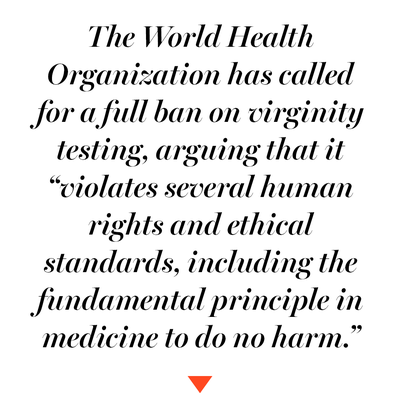
In 2017, facing pressure from women’s-rights advocates, including within the Ministry of Public Health, Afghan president Ashraf Ghani instructed Afghan medical facilities, like the state-run Forensic Medicine Directorate in Kabul, to stop forcibly carrying out the test on girls and women.
Despite the mandate, which was not approved by parliament or set into law at that time, the tests continued across the country, forced on women who ran away from abusive families, who fell in love without family approval, or who accepted a car ride home from a male friend. Afghan women’s-rights activists from Marie Stopes International, Medica Afghanistan, the Afghan Independent Human Rights Commission (AIHRC), and elsewhere rallied together in condemnation of the exams and the threat they posed to girls and women.
It worked. Last year, Afghanistan amended its penal code, which dictates Afghanistan’s criminal law, to ban virginity testing—except when ordered by a court or if a woman consents to the exam. (Experts argue that women have been forced into consenting, their fingerprints used to “sign” consent forms.) While the codification is progress, it is not a full ban as the World Health Organization (WHO) has called for, arguing that virginity testing “violates several human rights and ethical standards, including the fundamental principle in medicine to do no harm.” In fact, one year after WHO’s global call to action, no country, including the United States, has passed legislation fully banning the procedure.
Thousands of women around the world continue to endure invasive exams every year and face the dangerous, sometimes deadly, consequences of the sham results. The exams are often sanctioned by doctors, hospitals, courts, and governments, and routinely performed as part of medical and legal assessments of sexual violence, or even the screening process for employment.
In Indonesia, many women who want to join the military or police force—or marry a man in the security forces—have been instructed to submit to hymen exams. The Indonesian government has denied that such exams are still happening, but according to the Nurani Perempuan Women’s Crisis Center, women have been refused jobs due to “failing” virginity tests. “They can’t reach their dreams because of others’ faults,” says a police officer in the criminal detective unit who underwent a virginity test herself as part of a physical and mental examination to join the force. “I have no voice,” she says, agreeing to anonymously speak out in hopes that press coverage will help put an end to the practice.
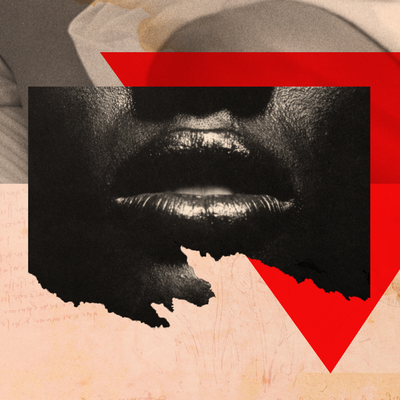
In Angeles City, in the Philippines, infamous for sex trafficking, girls and women undergo virginity exams in government-funded clinics catering specifically to women working in the “entertainment” industry. Darilyn, a 19-year-old Filipino woman, was told the exam was required to apply for a job at a strip bar frequented by American men. After the five-minute exam, during which a doctor “looked down there,” she says, he handed her an identity card with a large V printed on the front—for virgin. When Darilyn returned to the bar that night, her manager asked her to pin the card to her bikini bottom and sent her to the front of the stage. “My friends told me later that it meant men would pay more to spend the night with me,” she says, then pauses: “They call it cherry-picking.”
In Iraq and Syria, girls and women from the Yazidi religious minority group deemed virgins were bought and sold for thousands of dollars by their Islamic State captors. Women affiliated with ISIS inspected and questioned the sexually enslaved girls and women about their “virginal” status, threatening to conduct virginity exams if they lied. Later, from 2014 to 2016, when some Yazidi girls and women managed to escape ISIS captivity to Iraqi Kurdistan, health authorities subjected survivors of sexual violence to triggering hymen exams in an effort to document crimes perpetrated by the militants.
Even in the United States, physicians and medical professionals report being routinely asked to perform virginity tests on girls and women.

For women’s-rights advocates from New York City to New Delhi, the fight to end virginity testing and dispel the hymen myth can seem fruitless. But there have been hard-won advancements, even in Afghanistan, described as one of the most dangerous places in the world for women.
In January, at the urging of Afghan women’s-rights groups, Afghanistan’s first lady, Rula Ghani, traveled to Mazar-e-Sharif and visited with women prisoners who had been subjected to forced hymen exams. Her high-profile interest in the issue proved effective. Dozens of women were released in the months following—including Niloofar. She was freed in late April after nine months in prison.
Although underfunded safehouses and organizations like Medica that provide legal aid and psychosocial assistance are typically a woman’s only lifeline, Sadat says that, upon release from prison, Niloofar married a kind man who says he wanted to help her. A silver lining in an otherwise grim fight for justice.
Earlier this month, the Afghan government announced another amendment to its penal code. It now states that virginity testing can be carried out only when ordered by an authorized court. (A woman consenting will no longer suffice.) The Afghan Independent Human Rights Commission, led by longtime women’s-rights advocate Shaharzad Akbar, says this still isn’t enough. On October 8, the leading Afghan human-rights body called on the government to unconditionally ban hymen exams. Virginity testing has “no scientific basis for proving crimes,” AIHRC said in a firmly worded statement.
The lawyers aren’t giving up. “We will use the law, step by step” to protect women, says Sadat. One day, Sadat hopes, she will be a judge serving at the highest levels of her country’s judicial system. There, she’ll advocate for the Niloofars and the Medinas of Afghanistan.
Sadat doesn’t expect the fight to be easy. In the last five years working as a lawyer, she’s seen colleagues and other outspoken women harassed, threatened, and killed. “Surely, we are afraid,” she says. She doesn’t travel alone, if she can help it, and she has a local police number handy in case she feels her life is in danger. Regardless of the immense risk, it’s a cause she’ll devote her life to, she says, until “they stop taking away women’s rights.”
Khwaga Ghani contributed reporting from Afghanistan.
Marie Claire and the Fuller Project are committed to reporting on this issue. If you have been forced or coerced into undergoing a hymen exam, submitted to such an exam willingly, or encountered the hymen myth and would like to share your story, reach out to reporter Sophia Jones at sophia@fullerproject.org.


Sophia Jones is a senior editor and journalist with the Fuller Project, a journalism nonprofit reporting on global issues impacting women. To learn more about their work visit fullerproject.org.
-
 'The Pitt' Star Taylor Dearden Says She Sees Her and Dr. Mel's Neurodivergence as "a Superpower"
'The Pitt' Star Taylor Dearden Says She Sees Her and Dr. Mel's Neurodivergence as "a Superpower"Here's what to know about the Max series's breakout star, who just so happens to come from TV royalty.
By Quinci LeGardye Published
-
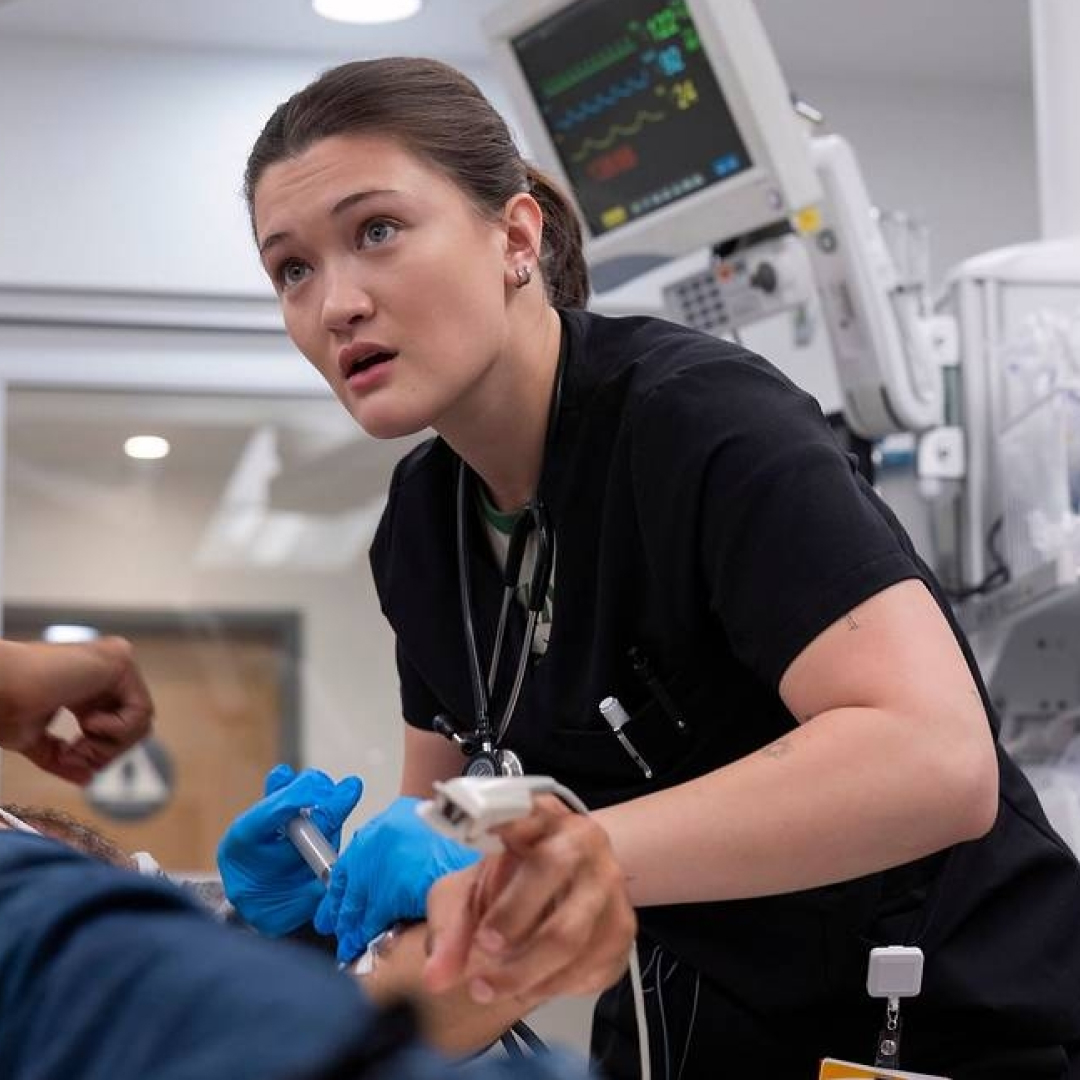 We Owe Trinity Santos From 'The Pitt' an Apology
We Owe Trinity Santos From 'The Pitt' an ApologyThe season finale of the smash Max series proved that the most unlikable character on TV may just be the hero we all need.
By Jessica Toomer Published
-
 Your Guide to the Cast of 'Got to Get Out,' Which Pits Reality TV Alums Against Each Other for a Chance at $1 Million
Your Guide to the Cast of 'Got to Get Out,' Which Pits Reality TV Alums Against Each Other for a Chance at $1 MillionHulu's answer to 'The Traitors' is here.
By Quinci LeGardye Published
-
 36 Ways Women Still Aren't Equal to Men
36 Ways Women Still Aren't Equal to MenFeatures It's just one of the many ways women still aren't equal to men.
By Brooke Knappenberger Last updated
-
 How New York's First Female Governor Plans to Fight for Women If Reelected
How New York's First Female Governor Plans to Fight for Women If ReelectedKathy Hochul twice came to power because men resigned amid sexual harassment scandals. Here, how she's leading differently.
By Emily Tisch Sussman Last updated
-
 Why the 2022 Midterm Elections Are So Critical
Why the 2022 Midterm Elections Are So CriticalAs we blaze through a highly charged midterm election season, Swing Left Executive Director Yasmin Radjy highlights rising stars who are fighting for women’s rights.
By Tanya Benedicto Klich Published
-
 Tammy Duckworth: 'I’m Mad as Hell' About the Lack of Federal Action on Gun Safety
Tammy Duckworth: 'I’m Mad as Hell' About the Lack of Federal Action on Gun SafetyThe Illinois Senator won't let the memory of the Highland Park shooting just fade away.
By Sen. Tammy Duckworth Published
-
 Roe Is Gone. We Have to Keep Fighting.
Roe Is Gone. We Have to Keep Fighting.How To Democracy always offers a path forward even when we feel thrust into the past.
By Beth Silvers and Sarah Stewart Holland, hosts of Pantsuit Politics Podcast Published
-
 The Supreme Court's Mississippi Abortion Rights Case: What to Know
The Supreme Court's Mississippi Abortion Rights Case: What to KnowThe case could threaten Roe v. Wade.
By Megan DiTrolio Published
-
 Sex Trafficking Victims Are Being Punished. A New Law Could Change That.
Sex Trafficking Victims Are Being Punished. A New Law Could Change That.Victims of sexual abuse are quietly criminalized. Sara's Law protects kids that fight back.
By Dr. Devin J. Buckley and Erin Regan Published
-
 My Family and I Live in Navajo Nation. We Don't Have Access to Clean Running Water
My Family and I Live in Navajo Nation. We Don't Have Access to Clean Running Water"They say that the United States is one of the wealthiest countries in the world. Why are citizens still living with no access to clean water?"
By Amanda L. As Told To Rachel Epstein Published